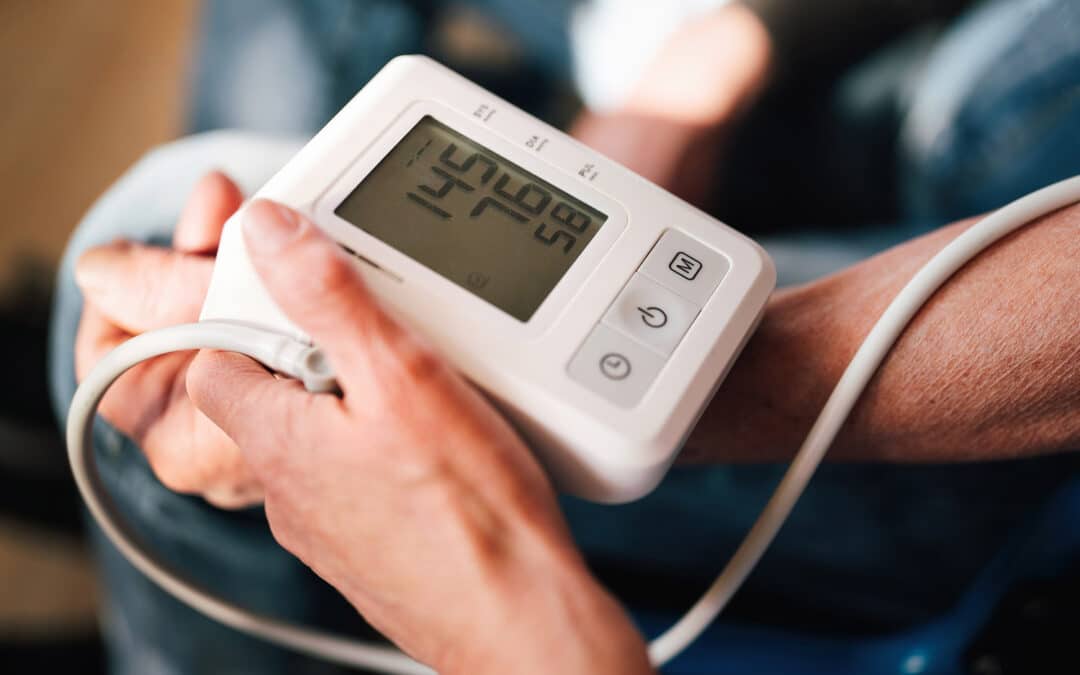Did you know that prolonged stress has been linked with heart disease? Once thought of as separate entities, there is mounting evidence to suggest a strong connection between our emotional health and our physical heart health. At Vital Heart & Vein, we believe in treating the whole individual—not just their symptoms. In this blog post, we’ll delve into the concept of stress, its effect on your heart, and provide some practical tips to manage stress better. If you have any questions or concerns as you read along, please do not hesitate to contact us.
The Stress-Heart Connection
Both acute and chronic stress can have profound effects on the heart and cardiovascular system. Acute stress, which is short-lived, can elevate your heart rate and blood pressure, preparing your body for an immediate response to a perceived threat. In contrast, chronic stress—which is long-term or consistent stress—can persistently keep your heart rate and blood pressure high. These cardiovascular effects happen as your body releases stress hormones when it perceives real or imagined danger.
Chronically elevated heart rate and blood pressure are two of the most widely studied factors in heart disease. They can lead to heart strain over time and even damage the walls of your arteries. This can cause inflammation and plaque in the arteries, leading to conditions such as atherosclerosis, a significant risk factor for heart disease.
Additionally, the American Heart Association mentions that stress may contribute to increased risk for heart disease by promoting unhealthy behaviors, such as overeating, lack of physical activity, an unhealthy diet, and not following prescribed medications.
Harvard Health research further points out that stress might cause individuals to behave in ways that increase their risk for heart disease. Often, people turn to comfort foods—such as high-fat, high-cholesterol foods—that further contribute to damage in the arteries, driving risks of heart attacks and strokes.
The importance of managing stress for heart health shouldn’t be underestimated. If you’re coping with chronic stress, it’s crucial to seek strategies for stress management to protect your heart’s health.
Don’t hesitate to reach out if you have any more queries on this topic or other health-related topics. At Vital Heart & Vein, we’re here to provide the answers you need for optimal health.
Recognizing Stress
Stress will always be a part of life; it’s an inherent reaction to the stimuli around us and how we cope with them. However, escalating stress levels over a prolonged period can substantially affect one’s health, particularly the heart. So, the crucial first step towards managing stress is effectively recognizing it when it arises.
It can be tricky as stress manifests in different forms for different individuals. However, there are certain common indicators of stress that you can look out for.
Physical Symptoms
Stress impacts the body in numerous ways. Generally, these physical symptoms are the result of heightened adrenaline levels that increase heart rates and blood pressure and tense up muscles. You may experience conditions such as headaches, fatigue, muscle tension or pain, digestive problems, sleep issues, or changes in sex drive. Don’t ignore these symptoms; instead, listen to your body and respond by addressing the stress in your life.
Emotional Indicators
Stress also makes its mark emotionally. When you’re stressed, you may experience mood swings, restlessness, feelings of being overwhelmed, difficulty focusing, irritability, or a general sense of unhappiness and anxiety. Understanding your emotions and correlating them with occurrences or triggers in your life can help you recognize and address stress early.
Behavioral Changes
Changes in behavior can often be indicators that something is off. Eating disorders—either eating too much or loss of appetite—are common signs of stress. You may also notice a disconnect from others, leading to outbursts or social withdrawal, procrastination or neglect of responsibilities, and increased use of alcohol, tobacco, or other drugs. Watch for deviations from your normal behavior patterns carefully.
Cognitive Symptoms
Stress can also affect your cognition, resulting in problems with memory or concentration, persistent worrying, negative thinking, poor judgment, or constant racing thoughts. Your mind might be cluttered with a whirl of thoughts, making it hard to focus on tasks at hand.
Recognizing these symptoms of stress is critical, as they are often the first signs that tell us we need to take steps to manage our stress levels. Your body and mind are incredibly sensitive instruments capable of signaling when you’re under too much strain. Being attentive to these signals and responding proactively is vital not just to keep your stress in check, but also to safeguard your overall health, especially your heart. And remember, if you ever need support or guidance, our Vital Heart & Vein team is just a call away.
Practical Tips for Stress Management
Regular Exercise
Regular physical activity releases endorphins—your body’s natural mood lifters. It also helps lower blood pressure and cholesterol levels, contributing to better heart health. Aim for at least 30 minutes of exercise most days of the week.
Mindful Eating
Under stress, people often turn to comfort foods high in sugar and unhealthy fats. Instead, try to include a variety of fruits, vegetables, lean proteins, and whole grains in your diet. Being mindful of what and when you eat can prevent binge eating related to stress.
Sleep Well
Getting sufficient quality sleep can reduce the effects of stress on your body. Poor sleep patterns can exacerbate stress and impact heart health negatively. Strive for at least 7-9 hours of sleep per night.
Mindfulness and Relaxation Techniques
Practices like meditation, deep breathing, yoga, and even hobbies can help divert your mind from stressors and promote relaxation. Even a few minutes in a day can make a significant difference.
Stay Connected
Staying connected with friends and family, seeking support during stressful times can also substantially alleviate stress. Emotional support and a sense of belonging contribute to better emotional and heart health.
Seek Professional Help
If stress management strategies do not help reduce your stress levels, consider seeking help from a mental health professional. Therapists can provide effective strategies like cognitive-behavioral therapy, which has been proven to help with stress management.
If You Have Questions, Contact Vital Heart & Vein
Remember, stress is not just “in your head.” It’s a real condition with potential implications for your heart health. And yet, stress is not necessarily a heart disease sentence. By understanding the connection between stress and heart health, you can take active steps to manage it effectively.
At Vital Heart & Vein, we’re committed to helping you take care of your heart in every way possible. We are here for you if you have any questions or concerns regarding stress and heart health. We believe that your health deserves a comprehensive approach—because every part of you matters to every single one of us.
Remember, take care of your heart, and it will take care of you! Feel free to reach out to us—your heart health partners at Vital Heart & Vein.







